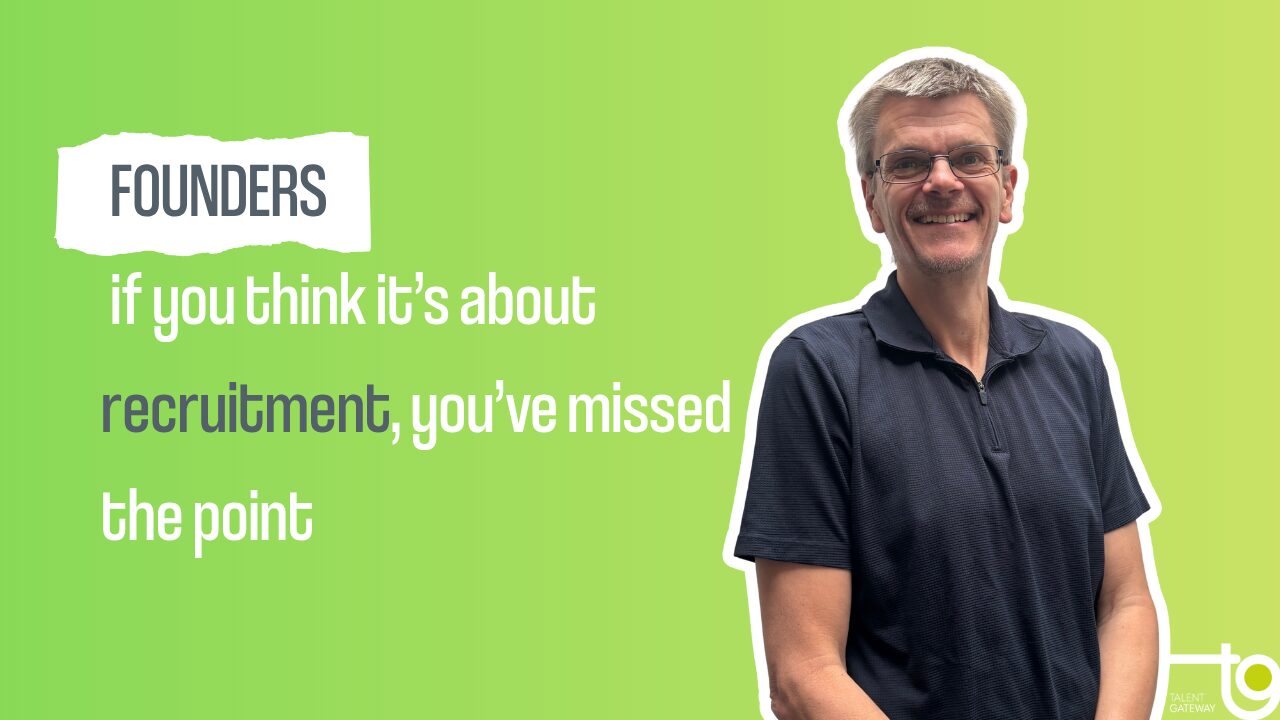After spending over 10 years in the corporate world building my own commercial teams, I set up Talent Gateway in 2012 with a simple mission: do recruitment better. What quickly became apparent during my first year of trading was the enormous misconception surrounding recruitment, especially during the critical scale-up phase of a business. Many founders and CEOs I spoke with would express similar frustrations: “Just find me great people,” or “I just want the pain of recruitment taken away.” These sentiments struck a chord with me, but they also highlighted a deeper issue—a misunderstanding of what’s really involved in hiring ‘great people’.
At the same time, I read a book that would significantly shape my thinking: Will It Make the Boat Go Faster? by Ben Hunt-Davis. In the book, Hunt-Davis, an Olympic gold medalist, shares how his rowing team’s success was built not on an obsession with the end goal—winning—but rather on focusing on the critical inputs and actions that would lead them to victory. Every decision they made had to answer the question: Will it make the boat go faster? If the answer was yes, they pursued it; if not, it was discarded. The outcome, their gold medal, was simply a byproduct of this relentless focus on what mattered most.
This philosophy holds a powerful lesson for recruitment as well. Too many businesses fixate on the outcome of ‘making the hire’ without recognizing the many essential inputs that drive consistent success. In truth, there’s not a chance you can consistently achieve, high-quality hires by focusing solely on the result. Just as in sports, it’s the groundwork you lay before and the support you provide after that ensure long-term success.
So, if you’re looking to consistently hire A-Players and scale your business, it’s not enough to see more CVs or interview more candidates. You must master the inputs. There are five key ingredients—what I call the 5 Ps—that are crucial for ensuring successful hires, and they must be in place before you start. Here’s what they are.
1. Plan
Your recruitment process starts with a solid plan. This is not about reacting to a vacancy by scrambling to create a job spec. Instead, it’s about being proactive—identifying what capabilities your business needs to meet its future objectives. Scaling a business means anticipating the skills, personalities, and leadership qualities you’re likely to need months in advance. By having a clear plan and anticipating requirements, you’ll be ready to hire the candidate with skills and team fit you need, when you need them. Not months later after a rushed mis-hire or two.
2. Proposition
A-Players aren’t just drawn to a salary or a job title; they want to be part of something meaningful. Your company’s proposition—what makes you unique and why someone should work for you—has to be clear and compelling. What’s your mission? What impact do you want to have on your industry or the world? As a founder you’ll be more than capable of ‘pitching’ once you’re in the room with a candidate – but as you grow, increasingly you won’t be. You need to capture your proposition and ensure that anyone involved in hiring delivers the same message. The better you can articulate this, the more you’ll attract the kind of talent that aligns with your values and is driven to succeed in your business.
3. Promote
Once you know who you need and why they’d want to work for you, you need to promote your business and opportunities in the right places. This doesn’t just mean posting job ads, or briefing an agent, and waiting. It’s about being active in the right circles, whether that’s industry events, professional networks, or even social media. Knowing where your potential A-Players spend their time and what they’re looking for is key to reaching them effectively.
4. Process
A robust hiring process is essential for identifying and selecting the right candidates. This means having a structured, consistent approach that allows you to assess candidates beyond just qualifications. Are your interviews structured to uncover cultural fit as well as assessing skills and experience? Do your assessments reflect the real challenges of the role? A weak or inconsistent process will lead to poor decisions, no matter how strong the candidates may appear on paper.
5. Perform
Finally, your work doesn’t end when a candidate signs their contract. Onboarding and supporting your new hires to perform at their best is critical. A-Players thrive on growth, challenge, and recognition. You need to create an environment where they can continually develop and make an impact. Without this, even the best hire will eventually disengage and leave.
At the end of the day, recruitment isn’t about the act of hiring itself—it’s about creating a system where great people can find you, thrive in your organization, and help propel your business forward. By focusing on the essential inputs—planning, defining your proposition, promoting strategically, refining your process, and ensuring performance—you set your business up for consistent hiring success.
So, if you’re serious about scaling your business and building high-performing teams, stop thinking of recruitment as a standalone task. Instead, ask yourself: Will this make our boat go faster? When you focus on the right inputs, the right results will follow.
